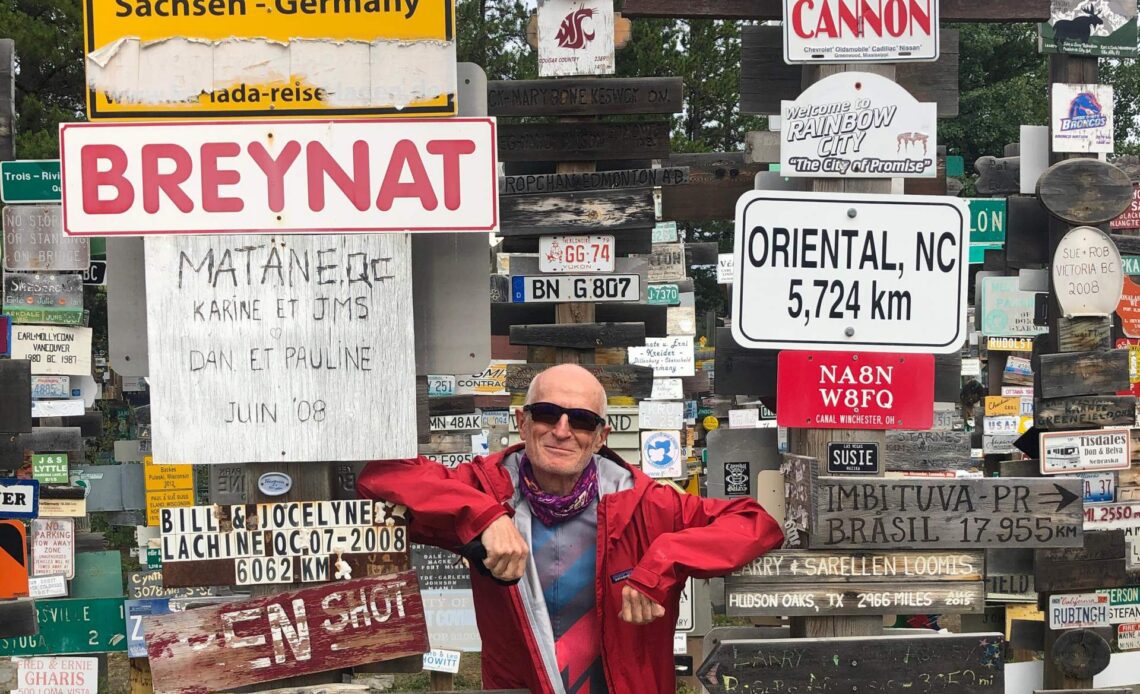We’ve been riding the Alaska Highway. It’s one of the great engineering feats of the north providing a land route from the south to Fairbanks, Alaska winding its way through northern British Columbia and the Yukon. It seems as if every town along it’s 2,446 km length has a museum or display devoted to “Alcan” (the Alaska-Canada Military Highway).
After the bombing of Pearl Harbor in December 1941 the Americans worried that Alaska would be vulnerable to a Japanese invasion. With Canadian concurrence US Army engineers began construction of the highway linking the south to the north in March 1942. The work was completed in a record time of nine months. It involved 11,000 American troops, 16,000 civilians and7,000 of pieces of heavy equipment.
The incursion of so many American troops must have had a major impact on local communities, economically and socially. Often First Nation residents acted as guides to existing trails which served as markers for the highway route. Today, it’s hard to discern the lasting influence of the American war-time presence other than in curiosities like the sign forest in Watson Lake.
One home-sick GI who was erecting directional sign posts put up on showing the direction and mileage to his hometown of Danville, Illinois. Unknowingly, he started a trend with others knocking up signs to their hometowns. Today, it’s a heritage site with over 80,000 sign posts from all over the world.
It seems as if the lasting impact of the Alaska Highway has been to open up the north to tourism. As we bike along fleets of camper vans and RVs stream past us heading north to camp, hunt, and fish in the breath taking wilderness, lakes and rivers of northern BC and the Yukon. It’s a change from the previous two years. About half the camp/RV sites I cycle by are boarded up, collateral victims of Covid lockdowns.
Yet others seem to have been much less affected. At Tetsa River Services I speak to Gail, whose husband is the third generation of his family to run the campground and cabins. She is a tall, brassy blonde who doesn’t mince her words but always with a laugh. As she tells it she was a city gal whose life revolved around travel and cities, her father was CEO of an aviation company. Later she joined Procter & Gamble as product rep for northern BC.
“I was full corporate top to toe,” she says. “I was told I had to go see the cinnamon bun guy.” Tetsa had built up a reputation for a unique…
Click Here to Read the Full Original Article at Canadian Cycling Magazine…

